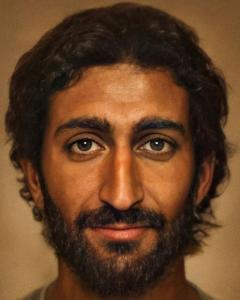Was Jesus well-known in the 1st Century?

I have been watching a docuseries called The Lost Treasures of Rome. It is mostly about archaeological digs in Rome and the surrounding Roman territories of the 1st century. It is very interesting what the archaeological digs discover about the emperors and civilization at the time right after Jesus’ death.
I’m not a historian or a theologian anymore, but I have always been interested in how history aligns with our estimation of how the Christian faith originated. We often envision Jesus’ disciples with a pen and papyrus recording what they saw, even though Jesus (from their recollection) never told them to write anything down. He also didn’t record anything himself because, like the others, he wasn’t educated in Greek, which was how the New Testament was recorded.
The following is not an academic paper. It is a summary of information I’ve gathered over time and, in most cases, a reasonable compromise to all the differing opinions. You’re welcome to express your views in the comments, but I’m attempting to sort through all the information and lay it out in a readable format to move forward with integrity.
Death of Jesus – 33 CE
Most narratives in history begin with Jesus’ death. If Jesus was born in 4 or 2 BCE, it could have been as early as 29 CE. But more than anything, this is what non-Christian historians confirm.
Paul’s letters – 48-67 CE
Paul began writing his letters earlier than most would like to assume. Because his persecutions were probably inflicted during Nero’s reign, we can make fair assessments of when his letters were pinned.
Seutonius – 64 CE
Seutonius was a Roman historian who wrote during the early imperial era of the Roman Empire. He referred to someone named “Chresto” and to the movement of Christianity as excessive religiosity (superstitio) when Nero (reign 54-68) persecuted Christians after the Great Fire of Rome was blamed on Christians. These thoughts were in his biography of Nero and concerning Nero’s persecution of them. It was a very brief mention.
Mark – 66-70 CE
Mark was most likely John Mark because of what Peter wrote. He did not author this gospel personally. His name was most likely added later for authority due to his influence. The authors of Matthew and Luke likely used his gospel as a reference.
Matthew and Luke – 85-90 CE
Matthew (possibly Levi) and Luke (who possibly wrote for Paul) were the second gospels, written 15 years after Mark and 30 years after Jesus’ death. At this point in the story, I begin to wonder why they waited so long. It was almost like they were responding more to Nero’s persecutions of Christians than an urgency to tell the story. Who waits that long to tell their story when it supposedly changed the world?
Antiquities by Josephus – 93-94
60 years after Jesus’ death, historian Josephus bothers to mention Jesus briefly. “Now, there was about this time Jesus, a wise man, if it be lawful to call him a man, for he was a doer of wonderful works, teacher of such men as receive the truth with pleasure. He drew over to him both many of the Jews and many of the Gentiles.”
Gospel of John – 90 – 110 CE
When talking about John and Peter, I think it is important to reference what the author of Acts said in Acts 4:13. He said they were “unschooled and ordinary,” and we know they were fishermen who spoke Aramaic. In addition, Peter was already dead (64), and his books were most likely written around 150 CE.
Pliny the Younger – 112 CE
Pliny mentions early Christian practices and their superstitions.
Annals by patheos.com/blogs/thedesertsanctuary/wp-admin – 116 CE
Tacticus confirmed the death of Jesus, but he also considered Christianity a form of Judaism.
Canon of Scripture – 400 CE
Four centuries after Jesus’s death, the Christian canon was agreed upon in various councils held in North Africa under the direction of Augustine of Hippo (393, 397, 419). Adjustments were made later in history, but this timeframe was probably prompted by Emperor Constantine’s movement to unite the Church with the empire earlier in the 4th Century.
As I watched the documentary about archaeological findings in the 1st century, around that time frame, it was easy to determine what the big events that happened during the first century were. Most of it was the egoic rise of the patriarchy through the Roman Empire. Early Christianity spoke truth to power but not in a way embraced by the populous. For example, the multitudes in Rome came to the Colosseum to watch them be slaughtered. The historians barely mention them until much later, when the narratives were crafted from their memories and oral traditions.
Christians of the first century were just one of the entities that were dehumanized in the Colosseum and blamed for the great fire of Rome by Nero. Only after these events did the Evangelists and historians bother to document the events of Jesus’ life and ministry. We know from the game of telephone that oral tradition is suspect to inaccuracies. Yet, we still impose supernatural qualities on these writings, many of which have unreliable authorship history (anonymously written or supposedly written by illiterates).
German historian of religion Hans-Joachim Schoeps (Religions of Mankind) argued that the Gospels are unsatisfactory as they were not written as detailed historical biographies, that the non-Christian sources provide no new information, and that the sources hopelessly intertwine history and legend but present the views and beliefs of the early disciples and the Christian community.
I agree with Paul that all these writings are “useful” and “inspired,” but so are millions of other texts. The supernatural and miraculous assumptions about Jesus and Christianity mainly were crafted in the centuries that followed, not from the eyewitness accounts or the archeological record.
Jesus and Christianity happened and is still happening. With such things as the current Christian nationalists are demonstrating, the narrative is easy to rewrite and conform to our cultural assumptions of the present day. And the modern-day fundamentalist Christian Nationalist view most closely mimics the egoic Roman Empire of the past than the humbler carpenter that spoke truth to power. The rest of us are somewhere in between.
Be where you are, be who you are,
Karl Forehand
The Fools Gold of a Misogynistic Narcissist
An Open Letter to Pastors for Consideration
Evolving From Religious Trauma

Karl Forehand is a former pastor, podcaster, and award-winning author. His books include Out into the Desert, Leaning Forward, Apparent Faith: What Fatherhood Taught Me About the Father’s Heart, The Tea Shop and Being: A Journey Toward Presence and Authenticity. He is the creator of The Desert Sanctuary podcast and community. He is married to his wife Laura of 35 years and has one dog named Winston. His three children are grown and are beginning to multiply! You can read more about the author here

















